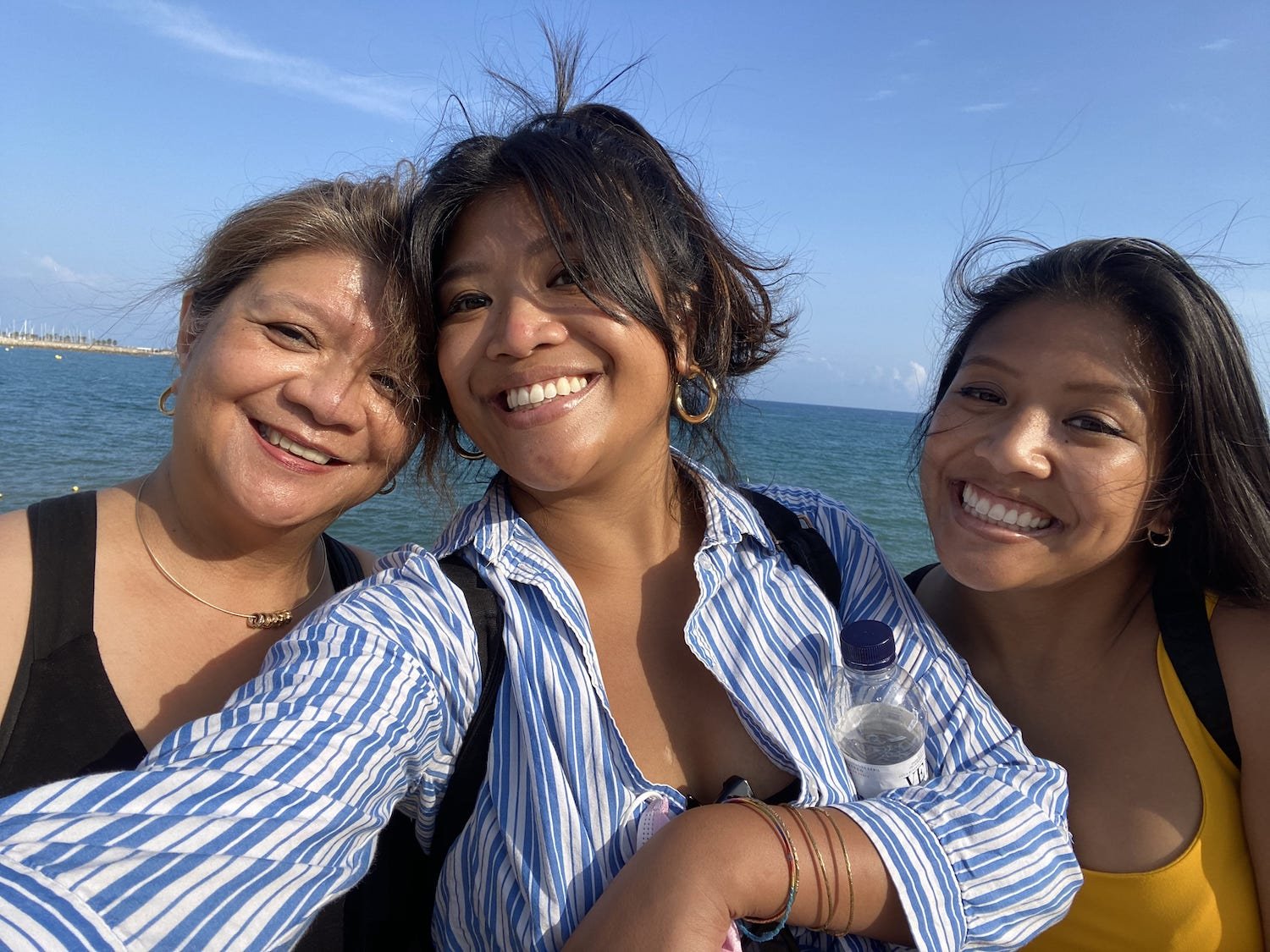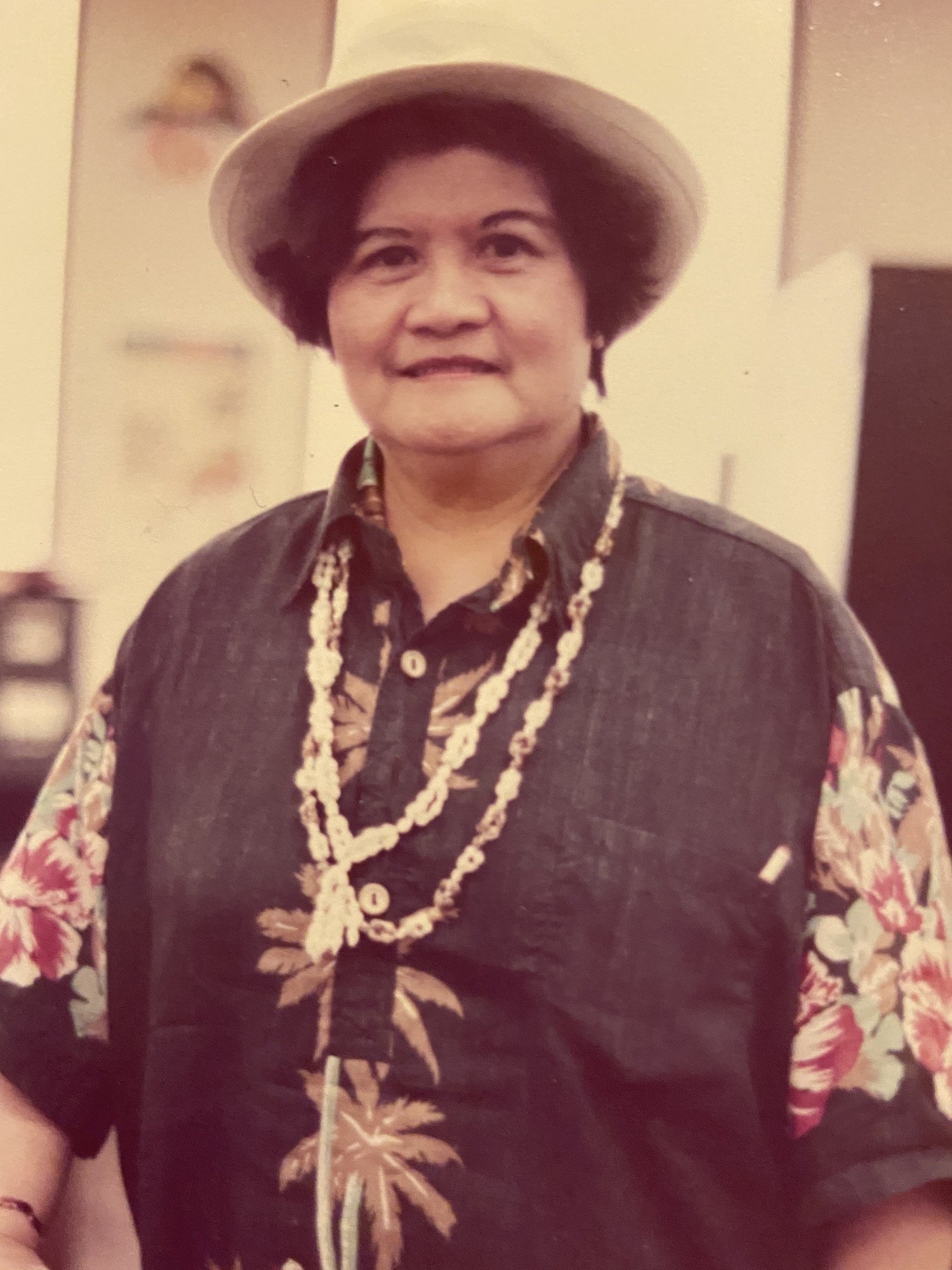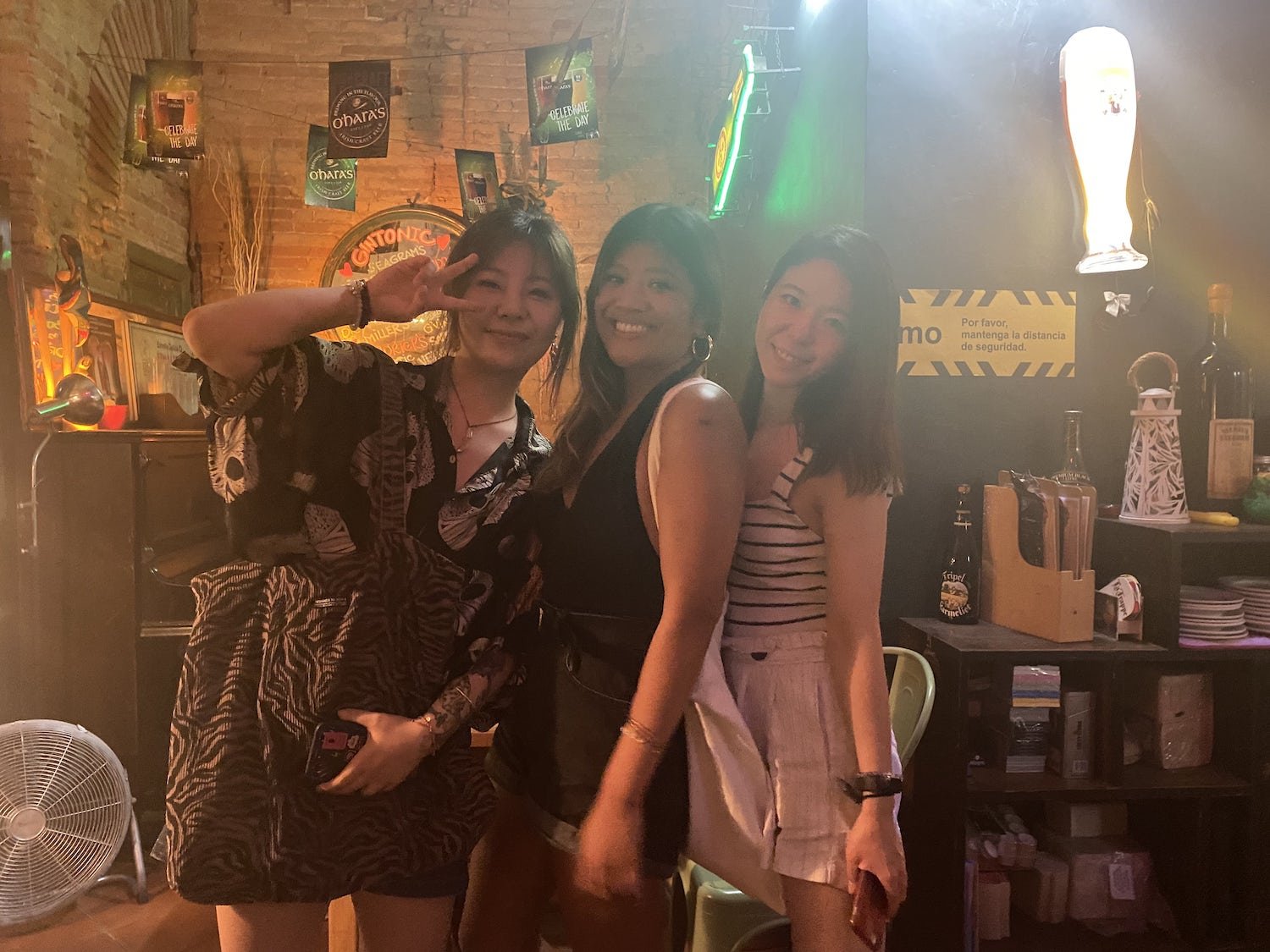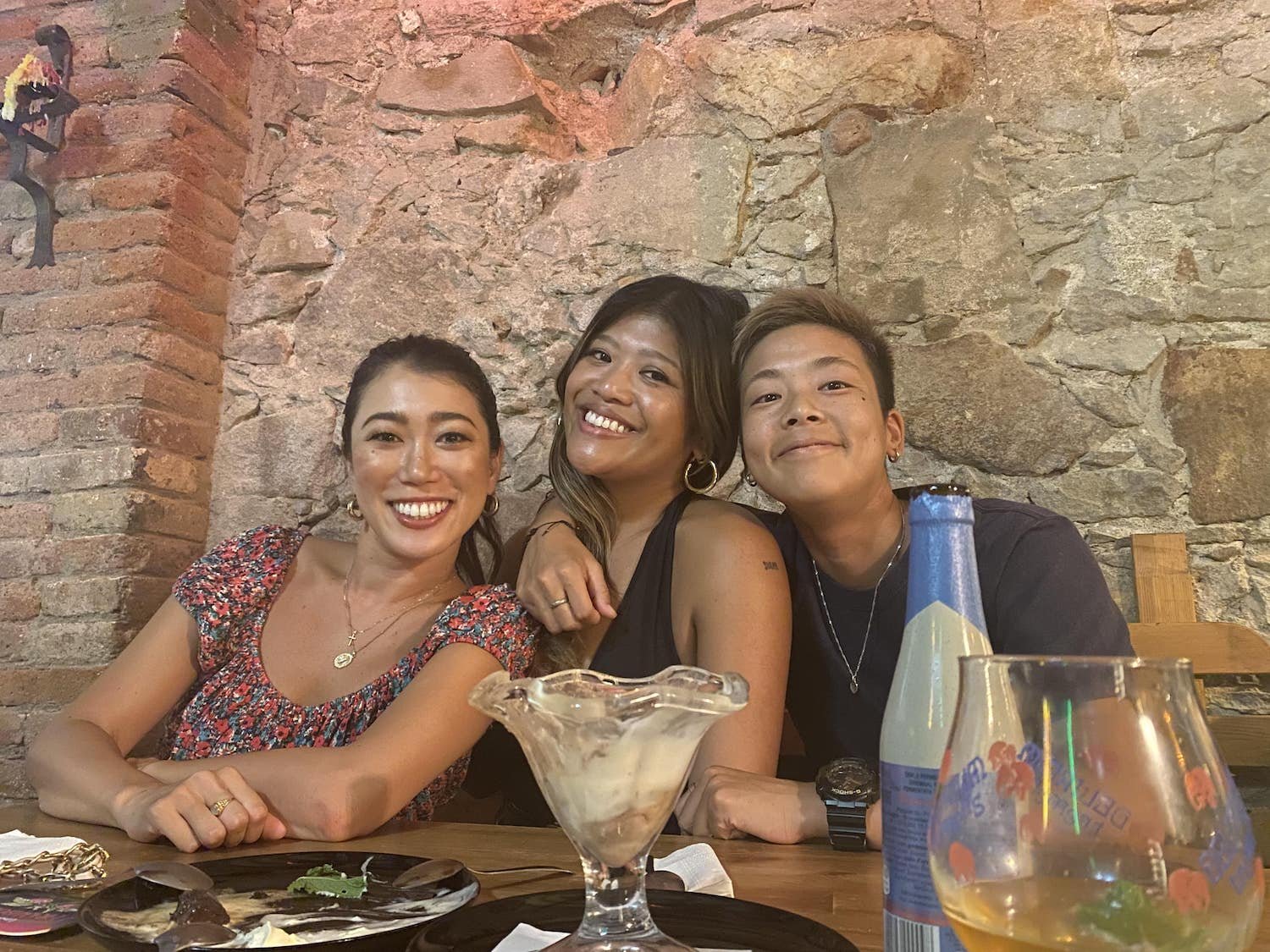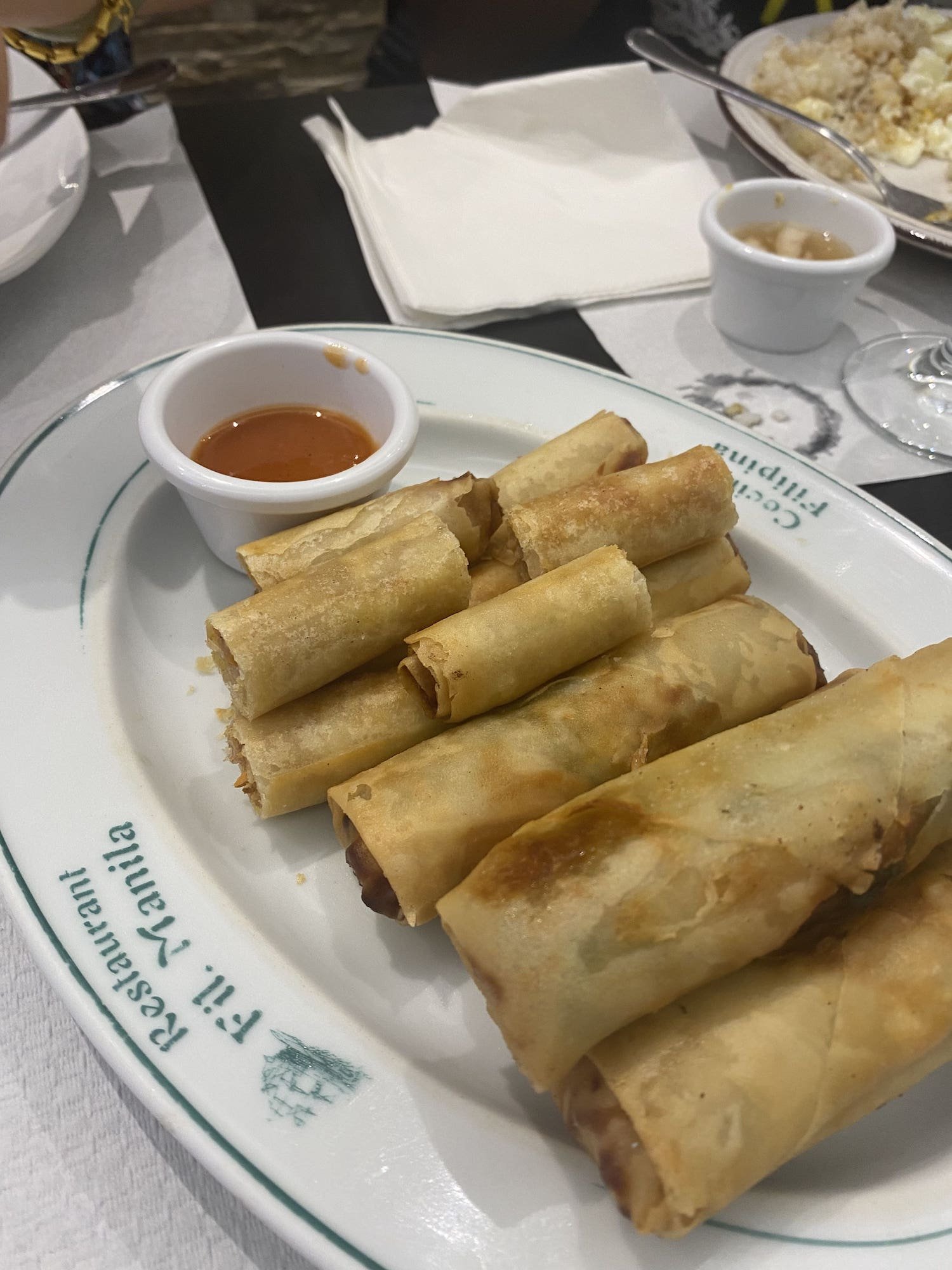As A Filipina-American, Here's What October Means to Me
This page may contain affiliate links. As an Amazon and Rewardstyle affiliate, we may earn a small commission for any purchases made through these links. Click here for the disclosure statement.
I'm a Filipina-American, born and raised in the San Francisco Bay Area. It is a beautiful place and I’m more than happy to call it my home. I have always admired the diversity of the Bay Area and the presence of Filipino culture—the restaurants, the festivals, and of course, the beautiful people. Now that I have moved out of not only the state, but out of the country as well, my Filipino heritage has become more important to me than ever. I am learning what makes me feel most Filipina-American and how I’m proud to be both.
October is Filipino American History Month and, over the years, it has become increasingly spoken about, whether it be through movies, up-and-coming artists, pop culture, TV series, fashion brands, cuisine, or local cultural events. There is the ongoing joke that, “Filipinos are everywhere!” We really are and we welcome everyone to celebrate Filipino American History Month with us—wherever you are in the world.
What Is Filipino American History Month?
In 2009, the U.S. Congress officially recognized October as Filipino American History Month, celebrating the first Filipinos to arrive in the United States on October 18, 1587, in what is now known as Morro Bay in Southern California. It recognizes the accomplishments and legacies created by the Filipinos who immigrated decades ago. The unique culture continues to make an imprint in the United States and on American culture.
Now, over 4 million Filipinos live throughout the United States, remaining a strong and valuable community all over the country. This is evident through the growing population, labor movements, music, movies, and other aspects of pop culture.
Various events are organized throughout the month, especially local celebrations that honor Filipino American History Month, such as dedicated museum exhibits, local marches, festivals, and even concerts. Overall, it is a month to honor, discover, and learn more about Filipino heritage and to celebrate the achievements together.
My grandmother, Elisa Naniola; San Francisco
I Feel More Filipina-American Than Ever
Growing up, I always felt my Filipino heritage and I was proud of it. My parents and grandparents spoke Tagalog—the native language of the Philippines—and Filipino food was a staple in the household. Even a majority of my friends were Filipino.
I am also lucky to be from the San Francisco Bay Area, which is diverse and something I like to brag about—just a little bit. All in all, I never felt that I wanted to hide or disregard my Filipino culture. I still don’t. I’ve always felt good saying that I am Filipino.
Fast forward, I decided to move abroad to Spain, and now I feel more Filipina-American than ever. It started with a simple question: “Where are you from?” As I started to meet more people, this question was asked more frequently than ever. I’d simply respond, “From California! Near San Francisco.”
Then, I began to see a pattern of the same confused facial expression. After I responded, often paired with the unsure look on their faces, they would ask: “Where are you really from?” At first, I used to take offense to this question, but it opened my eyes to recognize my Filipino heritage even more. I also realized that not many people understand this duality—including myself—because I began to rediscover what it means to me.
““...they would ask: ‘Where are you really from?’ At first, I used to take offense to this question, but it opened my eyes to recognize my Filipino heritage even more. I also realized that not many people understand this duality—including myself...””
I also began noticing that people would tell me that I have an American accent or that I’m a very “California” girl. From the way I dress, talk, and express my ideas, it all became clearer to me as I interacted with various people in Spain. On top of this, I have been increasingly craving many basic American things, including trips to Trader Joe’s, the endless food choices, the American humor, and other nuances. As I reflect, all of these aspects have made me feel more me and helped me feel more authentic while living on my own in a whole new country.
My new interactions with so many people from all over the world—from Norway to Korea to Japan—have helped me rediscover what being a Filipino-American means to me—now. This includes valuing the Filipino “traditions” that I want to maintain and have strengthened in recent years. I love the generosity and welcoming culture of Filipinos that I learned from my parents and grandparents. I admire the strong work ethic that is evident since the arrival of Filipinos in the United States. Lastly, the value of family—blood or chosen—and the importance of taking care of the people that take care of you. And, one more thing—Filipino food is amazing.
Along with rediscovering what it means to be Filipino, living outside of a conservative lifestyle has helped me feel more American and more myself. This includes moving outside of the country, following a more creative profession, and other lifestyle choices that might be disagreeable for my elders. Altogether, being American has helped me feel brave enough to make choices to live a life different from the generations before me.
I know that I’m not living a traditional life for a lot of people, especially my Filipino parents and family. However, that doesn’t change how I’m proud to embrace both parts of myself—proudly and authentically.
Being taken out of my comfortable, beautiful bubble of the San Francisco Bay Area, I’m learning what being Filipino-American means to me and how I’ve been maintaining these parts of myself. This often includes thinking of ways to preserve culture, whether it be through cooking a Filipino dish and sharing it with others, or trying out Filipino restaurants in other countries. It includes telling stories of my upbringing or even watching hilarious JoKoy standup to remind me of how wonderful it is to be Filipino—with all of our quirks and all.
Lastly, I’m owning the parts of myself that make me “so American”—from the way I talk, to the choice to live an “untraditional” life, or even to how I must fulfill my pumpkin spice latte craving every fall. I’m proud of both parts of me that inherently contrast each other, but simultaneously, blend into something special. Maybe I feel more Filipino-American now because I’m learning how to own it more than ever.
How to Celebrate Filipino American History Month
Support Filipino Artists
Discover and celebrate the work of various Filipino artists from actors, comedians, music, artists, and DJs. A few to consider are activist and mural artist, Jennifer Wofford, SoSuperSam (a very cool DJ), and famous comedian, JoKoy.
Donate
There are various organizations and ways to donate in honor of Filipino American History Month. Look up local events, including any that are being hosted at a local college or university. Many schools have Filipino cultural groups or clubs that organize events to bring awareness to Filipino culture, raise money, and build that connection of being Filipino-American.
Read Filipino History
Like every culture, there is a long history that often goes unnoticed or unspoken. Do a little extra research to honor Filipino History month. Some keywords to consider searching for more information are: ‘First Filipinos in America,’ ‘Larry Itliong,’ and ‘Filipinos in WWII.’
Eat Some Filipino Food
If you’re going to pick something on this list, this is the easiest and tastiest! Cooking and sharing food is so significant to Filipino culture. Ask a friend for a recommendation or try a local Filipino restaurant. As I said, we’re everywhere!
Educate Yourself
There are so many ways to learn and discover new information about anything, including Filipino culture. Watch YouTube videos or documentaries, go to a museum exhibit, or have a conversation with any Filipino person in your life and ask them questions!
Everyone has their own story and they are all worth sharing, which is why it’s important to take time to recognize and celebrate other cultures. Regarding if this information about Filipino American History Month is new to you or not, it creates an opportunity to learn more about Filipino heritage, expand your knowledge, and feel connected to something outside of us.


